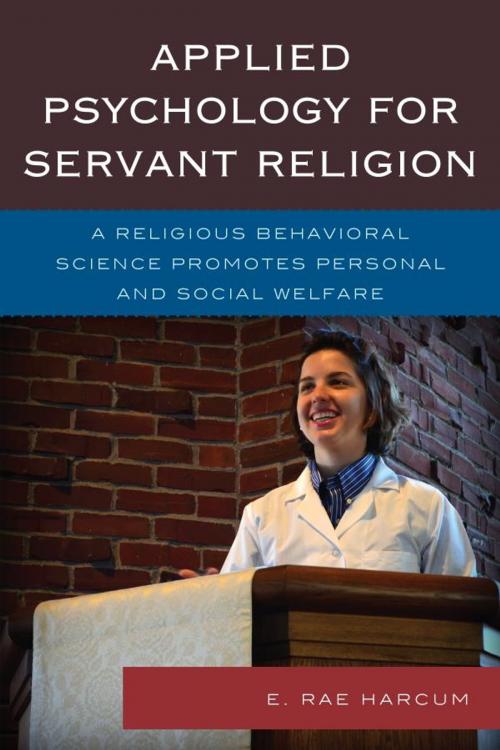Applied Psychology for Servant Religion
A Religious Behavioral Science Promotes Personal and Social Welfare
Nonfiction, Health & Well Being, Psychology, Testing & Measurement, Religion & Spirituality, Reference, Psychology of Religion, Interpersonal Relations| Author: | E. Rae Harcum | ISBN: | 9780761862758 |
| Publisher: | Hamilton Books | Publication: | December 6, 2013 |
| Imprint: | Hamilton Books | Language: | English |
| Author: | E. Rae Harcum |
| ISBN: | 9780761862758 |
| Publisher: | Hamilton Books |
| Publication: | December 6, 2013 |
| Imprint: | Hamilton Books |
| Language: | English |
This book is the third in a trilogy of books on introductory psychology. It emphasizes the application of psychological principles for the improvement of individual and group behaviors. The two principles of greatest relevance are the Law of Effect and the Principle of Human Agency. The universally-accepted Law of Effect states that rewarded behaviors tend to be repeated, whereas unrewarded or punished behaviors are not likely to be repeated. The controversial Principle of Human Agency states that individuals can make voluntary choices of behaviors that may, or may not, be successful in achieving their goals in life. If this second principle is true, the behaviors of individuals are not totally determined by the personal heredity of the individuals or by their environmental rewards or punishments. Applied Psychology for Servant Religion discusses problem solving, interpretation of test results, and ways to improve individual and social behaviors.
This book is the third in a trilogy of books on introductory psychology. It emphasizes the application of psychological principles for the improvement of individual and group behaviors. The two principles of greatest relevance are the Law of Effect and the Principle of Human Agency. The universally-accepted Law of Effect states that rewarded behaviors tend to be repeated, whereas unrewarded or punished behaviors are not likely to be repeated. The controversial Principle of Human Agency states that individuals can make voluntary choices of behaviors that may, or may not, be successful in achieving their goals in life. If this second principle is true, the behaviors of individuals are not totally determined by the personal heredity of the individuals or by their environmental rewards or punishments. Applied Psychology for Servant Religion discusses problem solving, interpretation of test results, and ways to improve individual and social behaviors.















